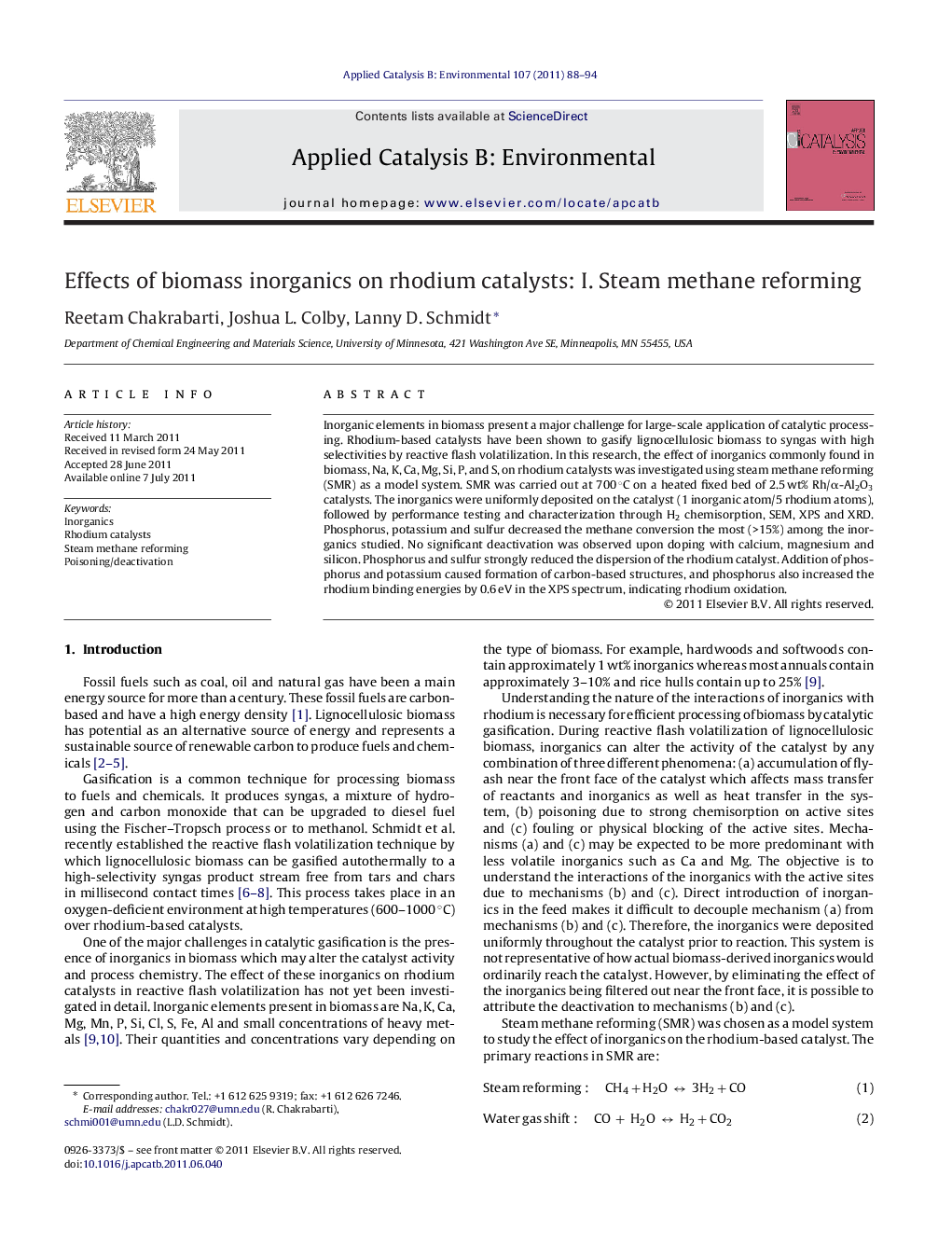| Article ID | Journal | Published Year | Pages | File Type |
|---|---|---|---|---|
| 46725 | Applied Catalysis B: Environmental | 2011 | 7 Pages |
Inorganic elements in biomass present a major challenge for large-scale application of catalytic processing. Rhodium-based catalysts have been shown to gasify lignocellulosic biomass to syngas with high selectivities by reactive flash volatilization. In this research, the effect of inorganics commonly found in biomass, Na, K, Ca, Mg, Si, P, and S, on rhodium catalysts was investigated using steam methane reforming (SMR) as a model system. SMR was carried out at 700 °C on a heated fixed bed of 2.5 wt% Rh/α-Al2O3 catalysts. The inorganics were uniformly deposited on the catalyst (1 inorganic atom/5 rhodium atoms), followed by performance testing and characterization through H2 chemisorption, SEM, XPS and XRD. Phosphorus, potassium and sulfur decreased the methane conversion the most (>15%) among the inorganics studied. No significant deactivation was observed upon doping with calcium, magnesium and silicon. Phosphorus and sulfur strongly reduced the dispersion of the rhodium catalyst. Addition of phosphorus and potassium caused formation of carbon-based structures, and phosphorus also increased the rhodium binding energies by 0.6 eV in the XPS spectrum, indicating rhodium oxidation.
Graphical abstractFigure optionsDownload full-size imageDownload as PowerPoint slideHighlights► Steam methane reforming was used to study effect of inorganics on Rh catalysts. ► Inorganics deposited on the catalyst (1 inorganic atom/5 atoms Rh). ► Sulfur showed strongest poisoning effects, but also partial regeneration. ► Ca, Mg, and Si, showed negligible effect on methane conversion.
